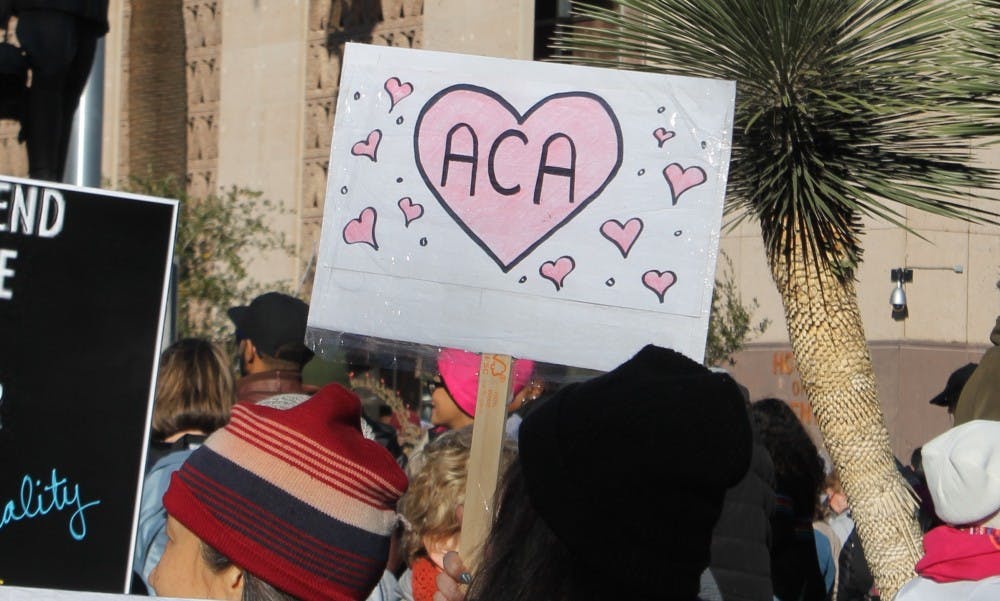Often the term “Obamacare” garners a somewhat negative response. Republican politicians refer to the health care plan as if it were a deadly poison. Nonetheless, some Americans still don’t quite understand what that health care law is.
Signed into law on March 23, 2010 by former President Barack Obama, Obamacare, more professionally known as the The Patient Protection and Affordable Care Act, is a federal healthcare law that was passed in order to increase the number of insured Americans.
In fact, the law has succeeded in this chief goal. The nation’s uninsured rate dropped to 8.6 percent, which is a record low, and although Republicans have claimed that the Affordable Care Act has killed jobs, it’s actually done the opposite. According to Politico, “more than one in nine employed Americans now gets a paycheck directly from the healthcare industry.”
However, this did not stop the anti-ACA crowd. Many Republicans still argue that the law is unconstitutional, using the individual mandate fee — which Americans must pay if they can afford health insurance but do not purchase it — as a key point.
This debate was eventually brought to the Supreme Court, where the justices decided six-to-three that the Affordable Care Act is indeed constitutional, allowing the law to survive.
Now we are at a crossroads. After almost seven years in action, this law is in danger of being repealed by the GOP. Since President Obama left office, it appears to be Republicans' No. 1 priority, and to them, the sooner it’s repealed, the better.
Yet repealing the law may be more difficult than lawmakers expected.
According to Professor David Wells, of the College of Letters and Sciences at ASU, “They won’t be able to do it in three months.”
“It’s not realistic, but they may be able to come up with a possible proposal in that amount of time,” he said.
Republican lawmakers seem to be getting some help though. After hardly a day in office, President Donald Trump signed an executive order that would “minimize the economic burden of the Patient Protection and Affordable Care Act.”
This order says that it will “prepare to afford the States more flexibility and control to create a more free and open healthcare market ... directing federal agencies to waive enforcement of large swaths of the law.”
Young and healthy, many college students don't think that they need to focus on health insurance right now. Yet despite these assumptions, a number of ASU students utilize an abundance of the provisions included in this healthcare law without even knowing it.
Female students benefit from a provision under the ACA which requires insurance companies to cover a wide-range of preventive services such as pap tests, diabetes screenings, cancer screenings and many brands and methods of birth control without co-pays. This requirement itself was a huge step of progress for women’s healthcare and reproductive rights.
Another reason students probably haven’t had to worry about health insurance yet is because the ACA allows young adults like us to stay on their parents’ insurance plans until the age of 26 (the previous cut-off age was 21).
Other benefits include the repeal of the pre-existing conditions ban, which prevented people with cancer, diabetes and other illnesses from getting health insurance. If you have a history of medical issues, you’re no longer denied coverage solely thanks to the Affordable Care Act.
Additionally, if you come from a low-income family, this healthcare law allowed your state the option to expand Medicaid, giving your family accessibility to affordable healthcare.
If these provisions aren’t enough to convince you that Obamacare is beneficial to students, consider the damages if it gets repealed this year. For one, it will add an additional $9 trillion to the national debt, which is already almost $20 trillion.
It will also affect all states by the loss of 2.6 million jobs, a majority of which will be in the private sector, in 2019 alone. Not only that, but there will also be a severe cut in federal funding for healthcare in that same year — $140 billion worth to be exact.
The first step to avoiding these issues and to save your benefits is to call your local congressperson. You can find your representatives by entering your zip code here. You can also tweet them or write on their Facebook pages, if provided. Additionally, students have the ability to organize and attend protests.
No matter what you do, be firm, always be polite and make your voice heard.
Reach the reporter at simone.rossi@asu.edu or follow @simonekathleen9 on Twitter.
Editor’s note: The opinions presented in this column are the author’s and do not imply any endorsement from The State Press or its editors.
Want to join the conversation? Send an email to opiniondesk.statepress@gmail.com. Keep letters under 300 words and be sure to include your university affiliation. Anonymity will not be granted.
Like The State Press on Facebook and follow @statepress on Twitter.




